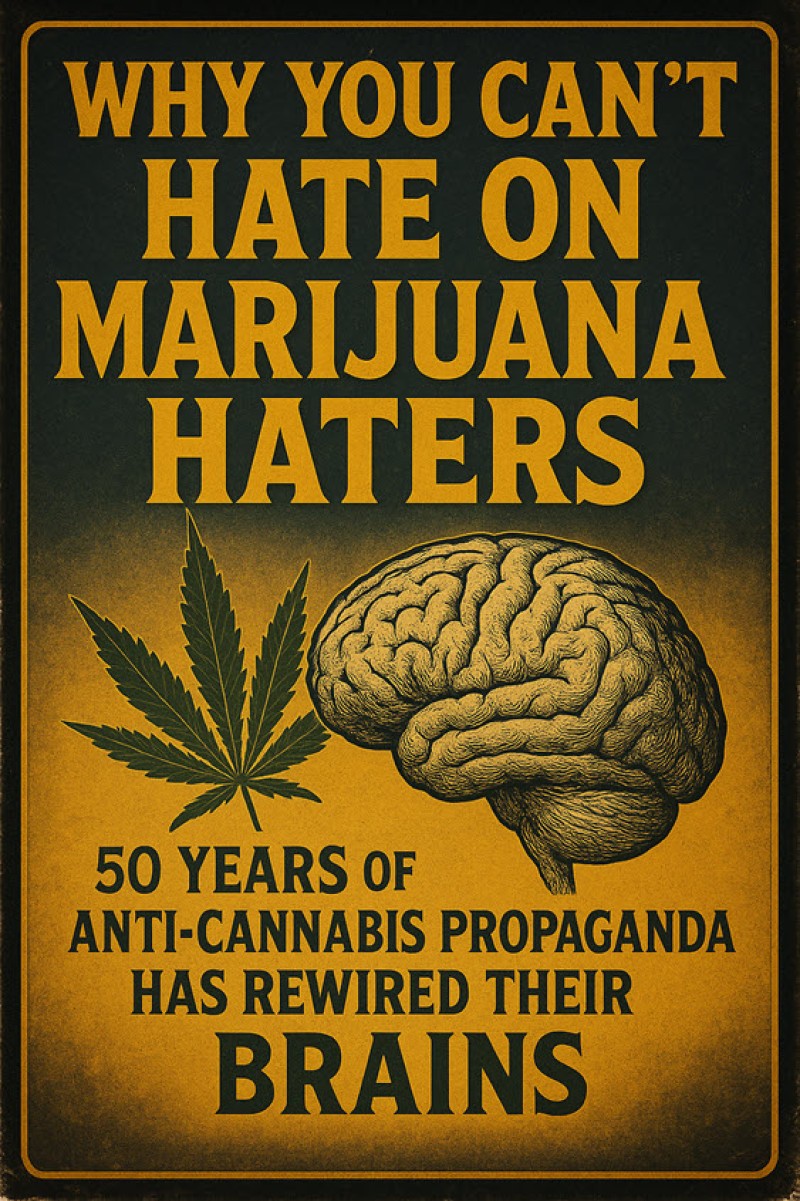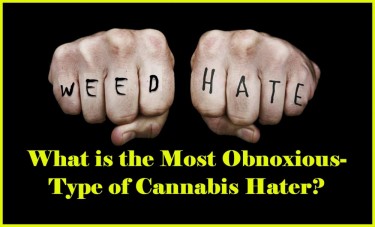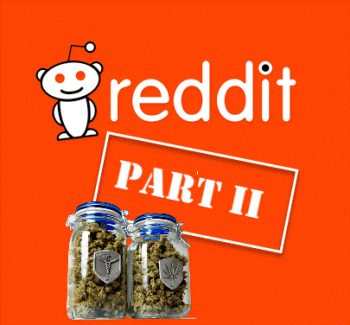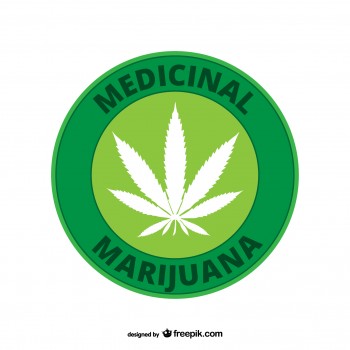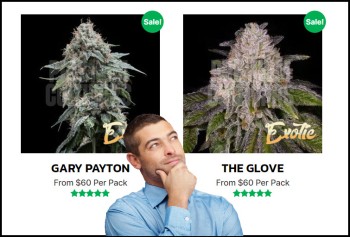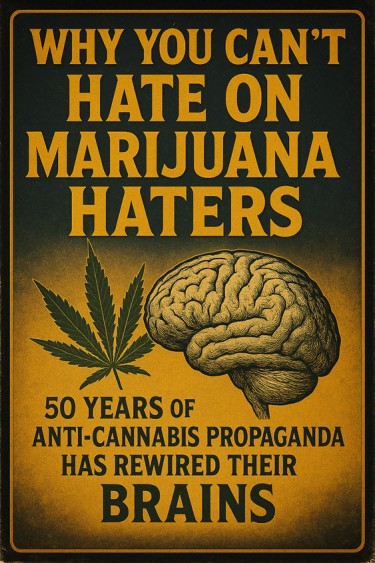
The Mind Prison: How a Century of Cannabis Propaganda Rewired Your Brain
"Why do people still demonize weed like it's crack or heroin?" asked a frustrated Reddit user in 2025, expressing bewilderment at the persistent stigma surrounding a plant that's been safely used for thousands of years. The question sparked a fascinating discussion that revealed something profound about human psychology: most of our deepest beliefs about cannabis aren't actually our own thoughts at all - they're carefully installed programs running in the background of our consciousness.
One Reddit user's confession perfectly captures this phenomenon: "I used to be VERY anti drugs and thought anyone that partook was a loser. I believed everything DARE and TV told me." But then something remarkable happened - real-world experience shattered the programming. "I actually met people who used cannabis. Some of the most intelligent and witty people I've ever encountered are cannabis enthusiasts." The spell was broken, the installed narrative collapsed, and authentic understanding emerged.
This transformation story isn't unique - it's the standard pattern that occurs when propaganda meets reality. The demonization of cannabis represents one of the most successful mind control operations in modern history, a century-long campaign that implanted false beliefs so deeply into our collective consciousness that even today, with mountains of contradictory evidence, millions of people still carry these mental viruses without question.
But here's the deeper question that should terrify and liberate you simultaneously: if your beliefs about cannabis aren't actually yours, what other "opinions" are you carrying around that were installed by institutions with their own agendas? How much of what you think you know about yourself, your world, and your values is authentic self-discovery versus cultural programming? And perhaps most importantly - could the intense effort to demonize cannabis be directly related to its ability to help people ask these exact questions?
The Century-Long Mind Hack
The systematic demonization of cannabis didn't happen overnight - it was a carefully orchestrated campaign spanning nearly a century, designed to implant specific fears and associations into the collective unconscious. Understanding this timeline is crucial because it reveals how deeply these artificial beliefs have been embedded into our cultural DNA.
The modern cannabis demonization campaign began in earnest with Harry J. Anslinger's racist propaganda machine in the 1930s, culminating in the infamous "Reefer Madness" film of 1936. This wasn't just anti-drug messaging - it was sophisticated psychological warfare designed to associate cannabis with violence, sexual deviance, and racial fears. Anslinger deliberately used the Mexican term "marihuana" instead of "cannabis" to exploit xenophobic sentiments, creating artificial connections between the plant and societal anxieties about immigration and cultural change.
But the real mind-programming accelerated during the 1980s and 1990s with Nancy Reagan's "Just Say No" campaign and the expansion of programs like D.A.R.E. (Drug Abuse Resistance Education). These initiatives represented institutionalized brainwashing on an unprecedented scale, targeting children during their most impressionable years and installing fear-based associations that would persist into adulthood.
The genius of D.A.R.E. wasn't just its anti-drug messaging - it was the systematic use of authority figures (police officers) in educational settings to blur the lines between learning and law enforcement. Children learned to associate questioning drug policy with challenging authority itself. The program created what psychologists call "thought-stopping" - automatic emotional responses that prevent critical thinking about certain topics.
As one Reddit user reflected: "I equated cannabis with every other drug and wrote them all off in a black and white fashion." This binary thinking - the inability to distinguish between vastly different substances with completely different risk profiles - is a hallmark of successful propaganda. Complex realities get reduced to simple good/bad categories that discourage nuanced analysis.
The institutional reinforcement was comprehensive. Schools taught D.A.R.E. curricula, churches preached about drug use as moral failing, media portrayed cannabis users as lazy criminals, and legal systems treated possession as serious crime. Every major institution participated in reinforcing the same false narrative, creating what psychologists call "social proof" - the sense that these beliefs must be true because everyone important seems to share them.
The psychological impact was profound and lasting. As another Reddit user noted: "They've been told for the last 100 years marijuana bad, bad, cause all the drug companies said so." But this understates the sophistication of the operation. This wasn't just telling people cannabis was bad - it was programming them to have automatic emotional reactions that would prevent them from ever questioning whether those beliefs were accurate.
The propaganda worked so well that even today, with legal cannabis industries generating billions in tax revenue and mountains of research demonstrating its medical benefits, millions of people still carry these installed fears. Their rational minds might accept cannabis legalization intellectually, but their emotional programming continues to trigger anxiety, disgust, or moral judgment when confronted with actual cannabis use.
This persistence reveals something crucial about how belief systems work. Once installed during childhood or adolescence, false beliefs become part of our identity structure. Challenging them feels like challenging ourselves, creating cognitive dissonance that most people resolve by simply avoiding contradictory information rather than updating their beliefs.
The most insidious aspect of this programming is how it disguises itself as personal conviction. People don't think "I was programmed to fear cannabis" - they think "I personally believe cannabis is dangerous." The installed beliefs feel authentic because they've been integrated into their sense of self, making them extremely resistant to factual correction.
The Illusion of Independent Thought
Here's an uncomfortable truth that most people never confront: the vast majority of what you believe about everything - not just cannabis - was installed in your mind by external forces before you developed the capacity for critical analysis. Your opinions about politics, morality, success, relationships, and life itself are largely products of your cultural programming rather than independent reasoning.
Think about it seriously for a moment. Where did your beliefs about cannabis actually come from? Did you conduct independent research, examine scientific literature, interview medical experts, and survey users before forming your opinion? Or did you absorb attitudes from family, friends, media, school, and cultural osmosis during your formative years when you had no ability to evaluate the accuracy of this information?
One Reddit user's journey illustrates this perfectly: "I found out my favorite professor in college was a user and it changed my whole perspective." Notice what happened here - not new information or logical argument, but direct contradiction of installed stereotypes through personal experience. The professor couldn't be both a respected intellectual and a "lazy loser drug user" simultaneously, so the false programming collapsed.
This reveals something profound about belief formation. Most of our strongest convictions aren't based on evidence or reasoning - they're based on social conditioning and identity associations. We believe things because we've been taught to believe them by authority figures during vulnerable developmental periods, then we rationalize those beliefs with selective evidence that confirms what we already "know."
The cannabis demonization campaign was particularly effective because it leveraged multiple psychological vulnerabilities simultaneously. It exploited tribal identity ("good people don't use drugs"), authority worship (government and police say it's dangerous), social conformity (everyone I respect opposes it), and fear programming (terrible things happen to users). These psychological triggers bypass rational analysis entirely, creating emotional responses that feel like personal convictions.
But here's where it gets really disturbing: if your cannabis beliefs aren't authentically yours, what else might not be? Your political affiliations, religious views, career choices, relationship patterns, financial beliefs, and life goals - how much of this represents genuine self-discovery versus cultural installation?
Most people never seriously examine this question because it's too threatening to their sense of autonomy. We want to believe we're independent thinkers making free choices, not unconscious robots running software installed by others. But the evidence suggests otherwise. Your geolocation, family background, socioeconomic status, ethnicity, and generational cohort predict your beliefs about almost everything with remarkable accuracy.
This isn't a personal failing - it's how human psychology works. We're social creatures who develop beliefs through modeling and social learning rather than independent analysis. Children don't rationally evaluate their parents' political views or religious beliefs; they absorb them as fundamental truths about reality. Adolescents don't conduct scientific studies of different lifestyle choices; they adopt the values of their peer groups and cultural environment.
The problem arises when these installed beliefs become so integrated into our identity that we can't distinguish between authentic self-discovery and cultural programming. We defend inherited opinions as personal convictions, often with great emotional intensity, without ever seriously examining their origins or accuracy.
The Power of Direct Experience
The most consistent pattern in cannabis demonization breakdown is direct experience trumping installed programming. As the Reddit user confessed: "Then I actually met people who used cannabis. Some of the most intelligent and witty people I've ever encountered are cannabis enthusiasts." Reality has a way of shattering false narratives when it can't be avoided or explained away.
This is why prohibition advocates work so hard to prevent people from having positive cannabis experiences or meeting successful users. The propaganda only works as long as it isn't contradicted by observable reality. Once people discover that cannabis users aren't lazy criminals, that medical patients aren't drug-seeking addicts, that responsible adults can use cannabis without becoming "dopehead losers," the entire false belief system begins collapsing.
The transformation process is usually dramatic and permanent. As another user described: "I didn't start until I was 29. I got some edibles and found relief from my chronic insomnia for the first time in a decade." This wasn't just discovering that cannabis worked - it was discovering that everything they'd been taught about cannabis was wrong. If the authorities lied about this, what else might they have lied about?
This is precisely why the cannabis experience is so threatening to institutional authority. Cannabis doesn't just provide medical benefits or recreational enjoyment - it provides evidence that official narratives can be completely false. It demonstrates that personal experience can be more reliable than institutional expertise. It proves that individual research and experimentation can lead to better outcomes than following official guidance.
But the implications extend far beyond cannabis policy. Once people realize they've been systematically lied to about a fundamental health and freedom issue, they start questioning other official narratives. If the government lied about cannabis for decades, what about their claims regarding other drugs? Other health issues? Other political topics? The questioning process becomes self-reinforcing and increasingly difficult to contain.
This is why cannabis isn't just prohibited because of pharmaceutical industry lobbying or prison industry profits - though those factors matter enormously. Cannabis is prohibited because it serves as a gateway drug to independent thinking. Not a gateway to harder drugs, as propaganda claims, but a gateway to questioning authority and trusting personal experience over institutional messaging.
The reddit discussion reveals this pattern repeatedly. Users describe how cannabis experience led them to question everything they'd been taught, not just about drugs but about authority, media, social conditioning, and the reliability of official information. The plant doesn't just alter consciousness temporarily - it can permanently alter the relationship between individual judgment and institutional authority.
The Reflective Drug Dilemma
Cannabis occupies a unique position among psychoactive substances because it tends to promote introspection and self-examination rather than escapism or unconsciousness. Unlike alcohol, which suppresses inhibitions and rational thinking, or stimulants, which create artificial confidence and energy, cannabis often enhances pattern recognition, promotes philosophical thinking, and encourages users to examine their lives from new perspectives.
This reflective quality makes cannabis particularly threatening to systems that depend on unconscious compliance. When people start examining their beliefs, questioning their choices, and considering alternative perspectives on life, they become much more difficult to control through traditional authority structures. They start asking inconvenient questions about why things are the way they are and whether alternative arrangements might be preferable.
The government's relationship with consciousness-altering substances reveals their priorities clearly. Alcohol and prescription drugs that suppress critical thinking, promote dependency, and maintain compliance are legal and heavily promoted. Substances like cannabis and psychedelics that promote self-examination, independent thinking, and questioning of authority are prohibited and demonized. This pattern suggests that the primary concern isn't public health or safety - it's maintaining psychological control over the population.
Cannabis doesn't just help people relax or manage medical conditions - it helps them recognize patterns, make connections, and see through bullshit. Regular users often report becoming more skeptical of media narratives, more questioning of political claims, and more resistant to social pressure. These aren't side effects of cannabis use - they're natural results of enhanced pattern recognition and reduced susceptibility to social conditioning.
This explains why cannabis prohibition has been so persistent despite overwhelming evidence of its failure. The issue isn't really about public health, crime reduction, or protecting children - it's about maintaining institutional authority over individual consciousness. Legal cannabis represents a fundamental threat to the psychological control mechanisms that keep people compliant with systems that don't serve their interests.
The Sticky Bottom Line: Breaking Free from Mental Slavery
The demonization of cannabis isn't just about drug policy - it's a case study in how institutional propaganda can hijack individual consciousness and install false beliefs that persist for decades despite contradictory evidence. Understanding this process is crucial not just for cannabis advocates, but for anyone who wants to distinguish between authentic personal beliefs and installed cultural programming.
The Reddit user who asked why people still demonize cannabis in 2025 was really asking a deeper question: why do humans cling to false beliefs even when evidence contradicts them? The answer reveals something uncomfortable about human psychology - most of what we think we know isn't actually knowledge at all, but programming installed by others during our vulnerable developmental years.
This realization should be simultaneously humbling and liberating. Humbling because it forces us to acknowledge how little of our worldview represents independent thinking rather than cultural conditioning. Liberating because it means we can choose to examine our inherited beliefs and replace false programming with authentic understanding based on evidence and experience.
The cannabis issue provides a perfect laboratory for this process because the programming is so obvious once you recognize it, and the contradictory evidence is so abundant. If you still carry negative feelings about cannabis use despite knowing the facts about its safety and benefits, you're experiencing installed programming in real time. That emotional response isn't based on rational analysis - it's based on decades-old fear conditioning designed to prevent rational analysis.
But here's the crucial point: questioning your cannabis beliefs is just the beginning. If institutional authorities lied to you about cannabis for decades, what else might they have lied about? If your emotional responses to cannabis aren't based on evidence, what other emotional responses might be based on programming rather than authentic judgment?
The path forward requires developing what we might call "belief hygiene" - the practice of regularly examining your convictions to determine which represent genuine understanding versus inherited programming. This isn't easy work because challenging installed beliefs creates cognitive dissonance and social friction. But it's essential work for anyone who wants to live authentically rather than as an unconscious robot running other people's software.
Cannabis demonization persists because breaking free from psychological programming requires courage, curiosity, and willingness to be wrong about fundamental assumptions. Most people prefer the comfort of inherited certainties to the uncertainty of independent thinking. But for those willing to examine their beliefs honestly, cannabis provides a perfect starting point for the larger project of mental liberation.
The question isn't really why people demonize cannabis - it's why they haven't yet developed the tools to recognize and overcome their own programming. Until we address this deeper issue, we'll continue fighting the same battles over and over, trying to convince programmed minds with logical arguments that bypass their emotional conditioning entirely.
The real work isn't changing cannabis laws - it's helping people reclaim their own consciousness from the institutions that captured it. Everything else follows from that.

